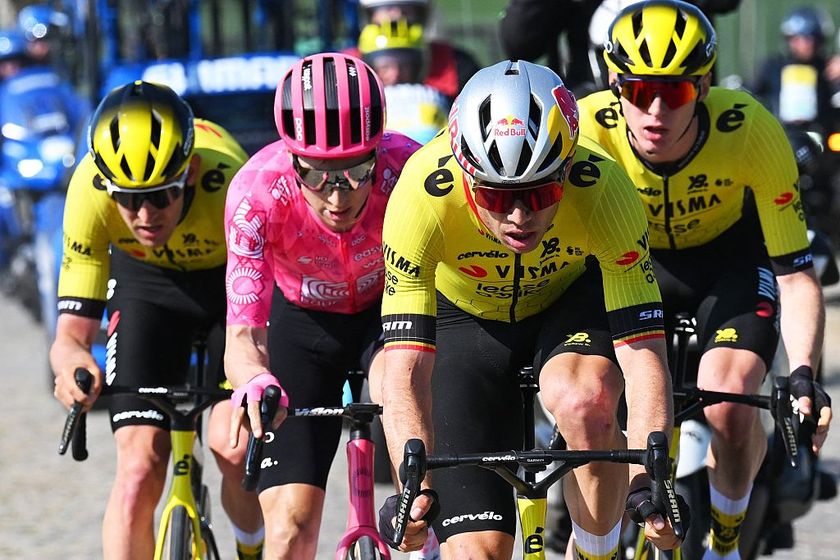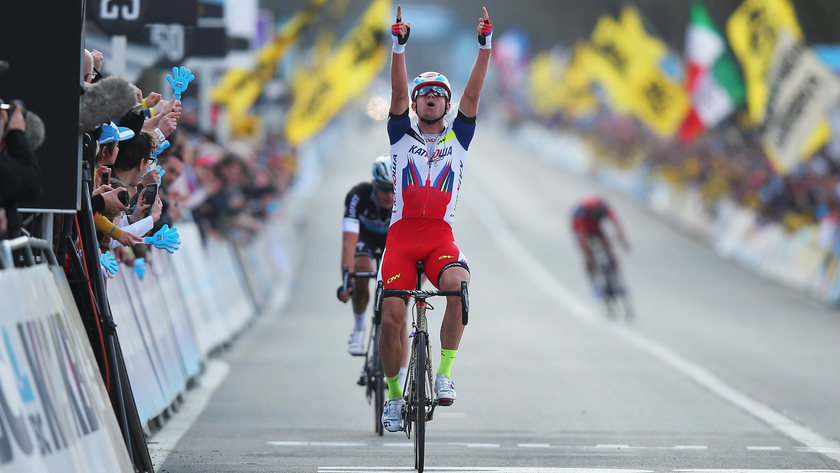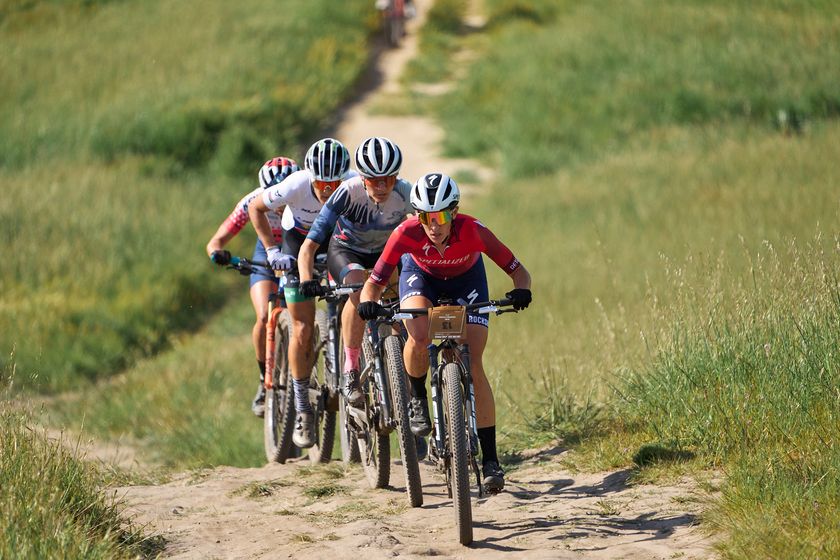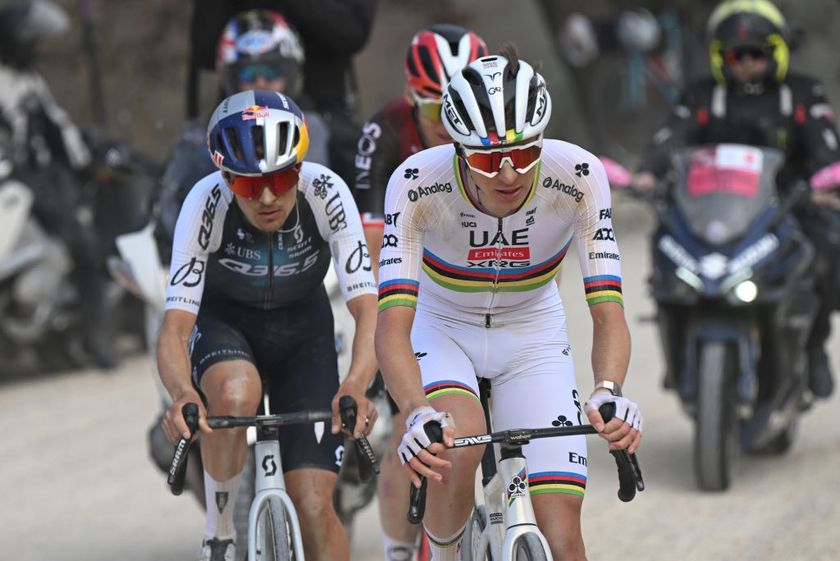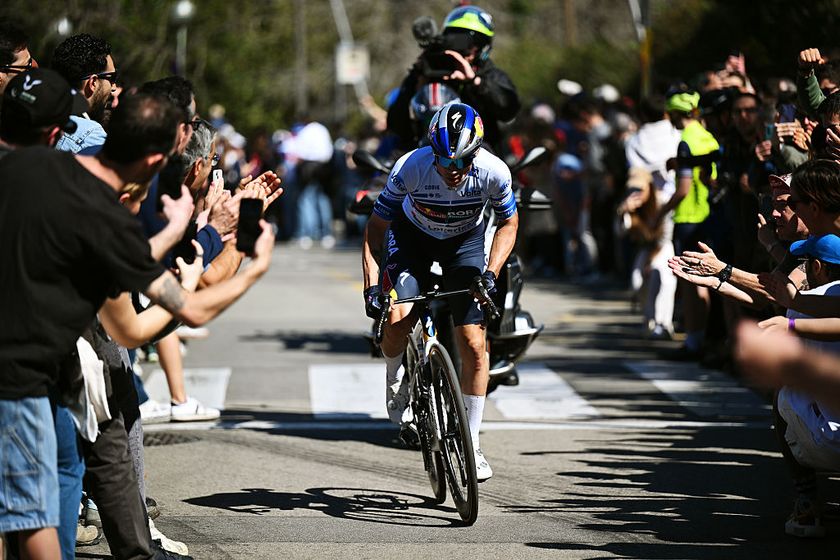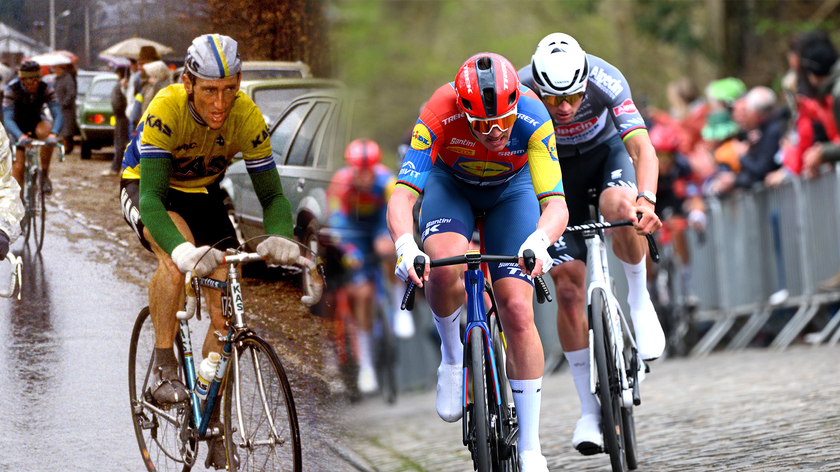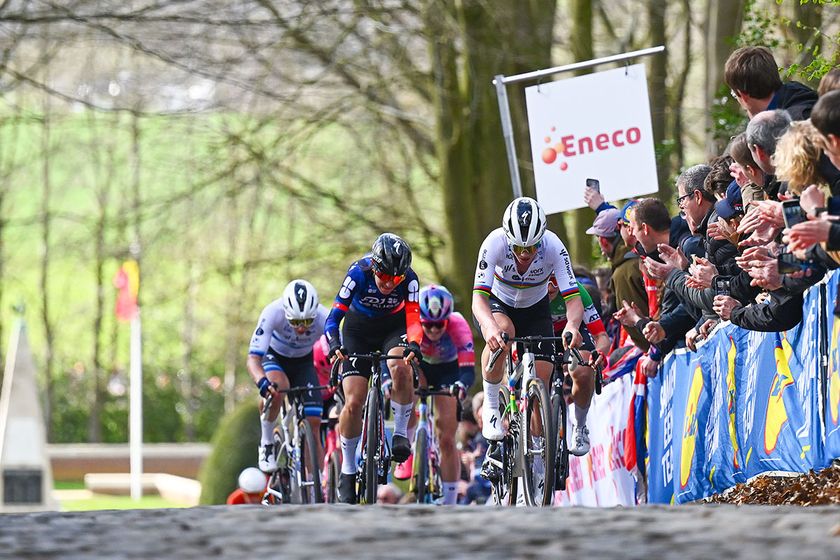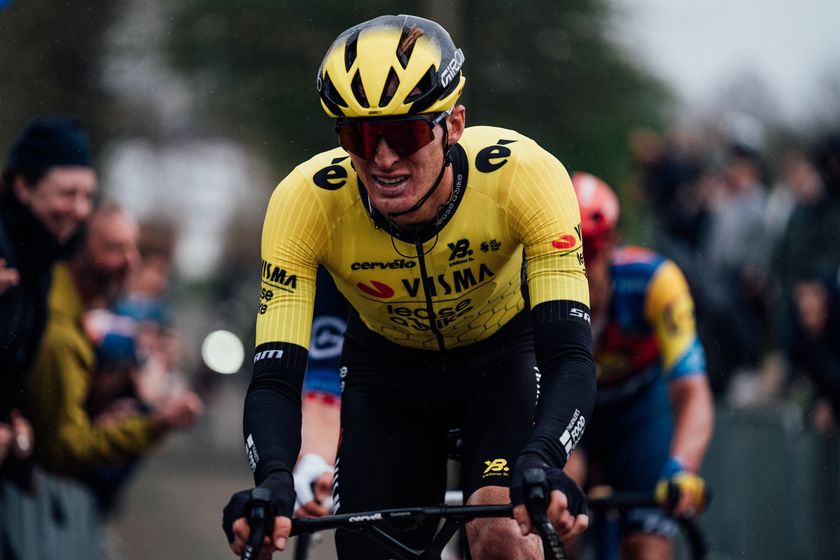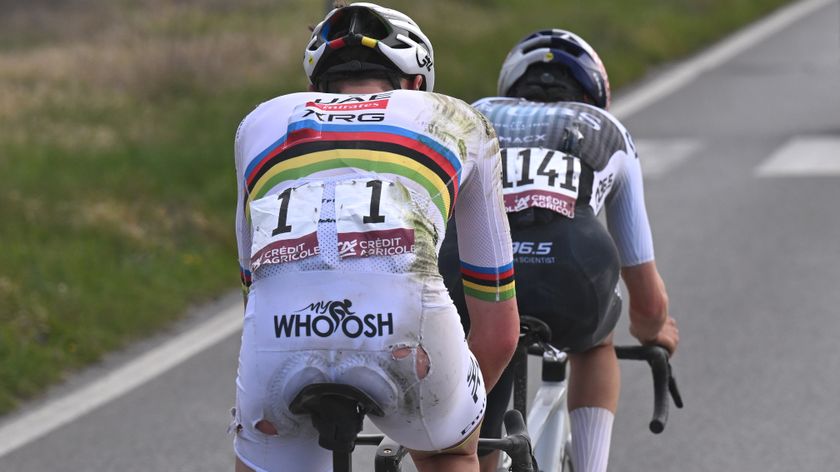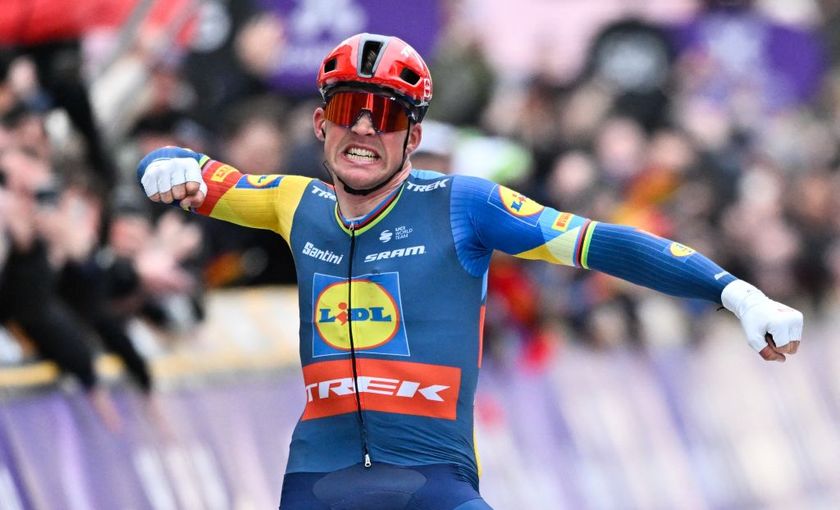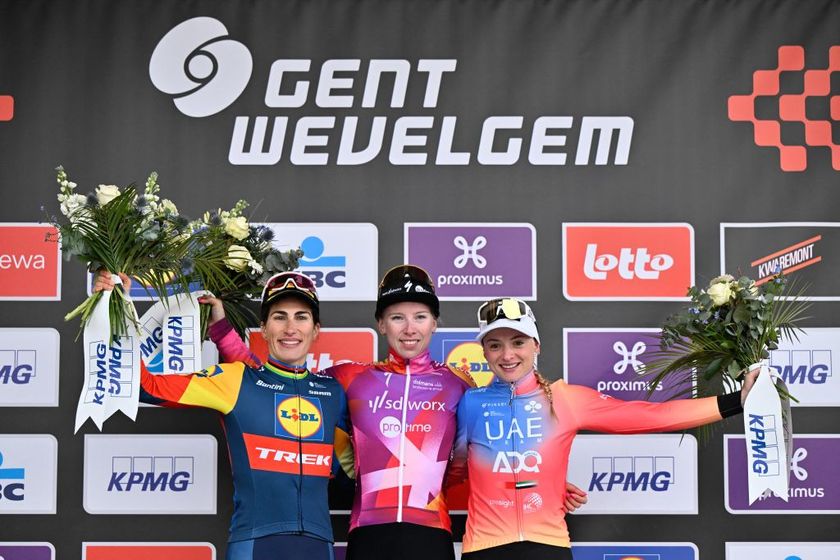Sepp Kuss alters his approach to be in better shape for Tour de France
American making Tirreno-Adriatico debut, ride Tour de Suisse
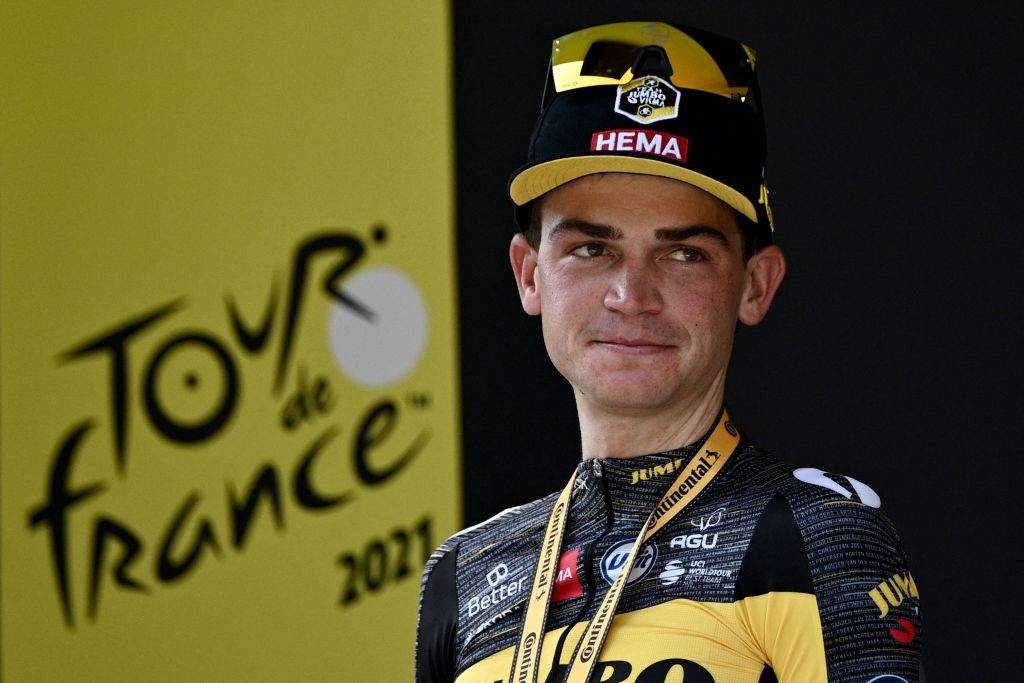
One of the most abiding memories of the 2021 Tour de France for many fans was Sepp Kuss (Jumbo-Visma) breaking away in the Pyrenees to take a heartfelt victory on 'home' soil in Andorra.
For all his hugely impressive climbing ability so clearly on display that day, the American will be making some interesting changes to his pre-Tour build-up for 2022 as he searches for more consistency.
The reason, Kuss recently told Cyclingnews, is that last July when he began the Tour, "I didn't feel close to being my best. So this year I'm doing things a bit different."
"A bit different" looks like something of an understatement when the 27-year-old from Colorado actually outlines his race program for 2022.
Last year the UAE Tour, the Volta a Catalunya, Tour de Romandie and the Criterium du Dauphine were all on his schedule. But rather than mention any of those races for 2022, Kuss will be doing "some one-day races in France to start out, then Strade Bianche, Tirreno, Basque Country and the Tour de Suisse."
His schedule comes out to a similar number of race days compared with 2021 but Kuss will be making his debut in Tirreno, "because we'll go there with Jonas Vingegaard and I want to help him. Plus I've never done Tirreno before and it's nice to do new things."
Deeper into the season, the pre-July change to his racing is because "last year I didn't feel good going into the Tour. It had been just training camps and races and training camps and sometimes you do too much."
Get The Leadout Newsletter
The latest race content, interviews, features, reviews and expert buying guides, direct to your inbox!
After a build-up that didn't go too well in 2021, and a Tour de France where - following Primoz Roglic's early exit - the rest of the Jumbo-Visma squad stepped up to fill the breach, the 2022 Tour and its preparation could well be more straightforward for Kuss.
"If we go there with Primoz and Jonas we already have two guys more than capable of winning the race," Kuss points out. "So unless it's like last year where things totally get changed, I'll probably have more of a team role."
But if things are much more clearly defined for Kuss regarding the Tour de France, for the Vuelta a España things are currently much hazier than in 2021. And they'll likely remain that way until after the Champs Elysées finish.
"We'll see what happens and who goes to the race after the Tour. I hope to be there," says Kuss, who secured his first-ever overall top ten in a Grand Tour in the Vuelta while helping Roglic to a third straight victory.
"For me, it's a good combination to do the Tour and Vuelta. Normally I always feel better in the Vuelta than in the Tour so we'll see what the roster looks like. There's also a team time trial in the Vuelta, which changes things as well."
During the Jumbo-Visma team presentation on Tuesday, one commentator observed that despite being more than able to match or even outpower some of the biggest GC names on the planet on the climbs sometimes, Kuss has yet to gain a degree of consistency throughout races that would allow him to fight for Grand Tours himself.
Channel that thought back to the man himself, and the American recognises that he is not yet "in a position where I want to claim outright leadership. It's something I want to do, but I need to work towards that still and still earn that role."
But to gain that consistency, what is the best strategy for Kuss? Improving on things he already does or experimenting with new approaches? "A little bit of both. It's partly mental because it's always easy when you feel good. It's more about getting through the bad days you have and mitigating that situation."
With riders like Vingegaard moving rapidly up the GC ladder at Jumbo-Visma, you could argue that Kuss, at 27, might be feeling that the pressure to perform has cranked up a few notches. But he doesn't see it that way.
"No. It's up to me to be at my best and it's fine for me if other riders are getting better. It's just nice to be part of that either way.
"For me, it's a bit different. With Jonas, we always saw from the beginning that he was really talented. It was just a question of him putting it together to do that [succeed]. And he did it a bit sooner than maybe we all thought."
Kuss' run of high profile climbing success has made him the top US stage racing rider of the moment, with his Tour de France stage win the first for North America in a decade. While more than comfortable with other American riders seeing his professional path as one to try and follow in order to break into top-level cycling, he's not obsessed with being seen as a reference point.
"I don't know so much about that, because I haven't really given out too much advice to anybody, I just kind of keep to myself, do my own thing. I always work the best I can and then the results are due to that," Kuss says.
Yet he agrees that his career "Is a good example for the US guys coming over because more often than not, you have to come to Europe, be comfortable in Europe, ride for a non-American team. It's about getting out of your comfort zone into what is, now, my comfort zone. So that's the biggest step."
In the US, if there's no reason for rider quality to have diminished but the road racing scene is a shadow of what it has been in the past. Cycling has simultaneously diversified, making for a new kind of challenge that riders have to master to progress, Kuss says.
"It's just different now, where the sponsors and the interest are, you can see that in the US gravel scene which is really big, the criteriums…. We're definitely missing the big road-races now, it's really sad to see a race like Utah go"- the 2018 edition was one of Kuss' breakthrough events - "also California."
On the other hand, "There are more riders coming from different disciplines, and there are still races, just more different kinds. If an individual really wants to do something or race in Europe, there's more than one way to do it. I never really rode for the US under-23 team for example. So you just have to find your own way."
Fast forward back to Kuss' own present and his strategy for 2022 he says, is to keep going down the path that proved so beneficial in 2021.
"Building off last year, improving in little ways. One win is always nice. So we'll see."
But in any case, he says, there are definitely areas where he can raise his own game, even if at 27, he's already "not young in age, especially in cycling terms.
"I still have a good margin. In terms of the actual years I've spent being a professional, road cycling and all the nuances are still new to me. So I still have a lot of room for improvement. "
Alasdair Fotheringham has been reporting on cycling since 1991. He has covered every Tour de France since 1992 bar one, as well as numerous other bike races of all shapes and sizes, ranging from the Olympic Games in 2008 to the now sadly defunct Subida a Urkiola hill climb in Spain. As well as working for Cyclingnews, he has also written for The Independent, The Guardian, ProCycling, The Express and Reuters.

